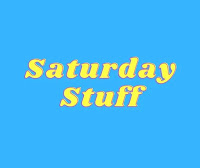The Master Trend: How the Baby Boom Generation Is Remaking America ~ by Cheryl Russell, 1993, social aspects, 285 pages
This 30-year-old book claims that the Baby Boom generation (born between 1946 and 1964) was leading the nation into the future. They had elected one of its own to the White House (Bill Clinton was born in 1946), and this generation — the largest and best educated in history — was poised to place its imprint on the 21st century. Cheryl Russell was predicting the future of this most singular of generations. Members of the Baby Boom generation, according to her, have always embraced their independence. This individualism became the master trend of that time.
But the Baby Boom generation found itself in the midst of a midlife crisis as it was pulled in one direction by its sense of individualism and in another by its children. Baby Boomers, following the beat of their own drummer, were suddenly awakening to the urgent need to bring society together for the sake of their children's future. The Baby Boom generation prizes individualism so highly that it became the first generation of what Cheryl Russell calls "free agents." Free agents became both the creators and the eager customers of a new, fast-paced, hotly competitive "personalized economy" that seized on cutting-edge technologies to produce the innovative and custom-designed products and services the world needed.
This 1993 book asked if this personalized economy would bring prosperity to Americans. Would the free agents of the Baby Boom generation make life better for all of us? Would they learn to work together for the good of society? And what kind of society are the Baby Boomers leaving to their children? In a culture that values individualism above all, what would happen to the unprepared millions trapped in the margins of society?

I'm not sure this book is worth reading at this point, since we've added "new" generations since the Boomers. I have no idea who decided which folks are in which generation, but below is what I found online. Notice it does NOT agree what the 2019 chart above:
- Greatest Generation is anyone born from 1901 to 1924.
- Silent Generation is anyone born from 1925 to 1945.
- Baby Boomer is anyone born from 1946 to 1964.
- Generation X is anyone born from 1965 to 1980.
- Millennial is anyone born from 1981 to 1996.
- Generation Z is anyone born from 1997 to 2012.
- Generation Alpha is anyone born from 2013 to 2024.
- Generation Beta will be those born from 2025 to 2039.
So what year were you born, and which generation do you consider yourself a part of? I was born in 1940, making me part of the Silent Generation. But I rarely keep silent.

















































